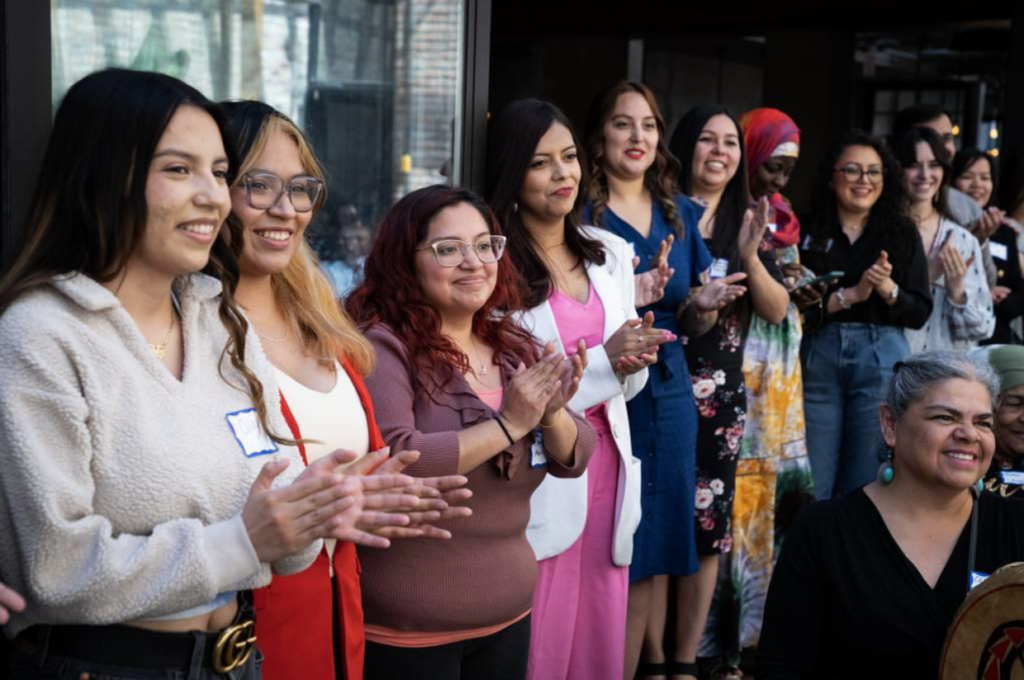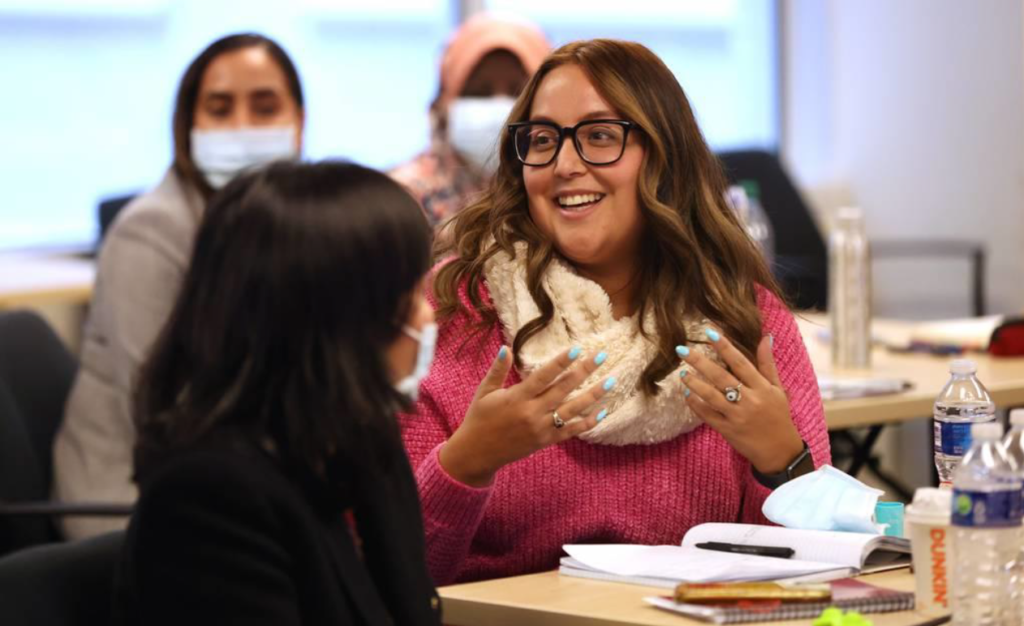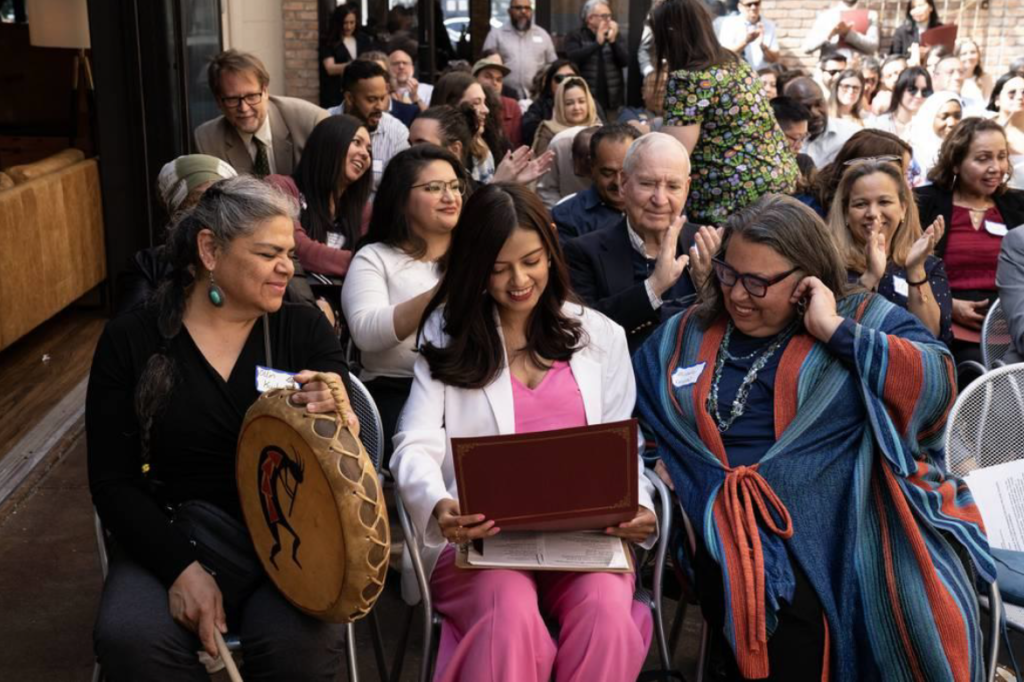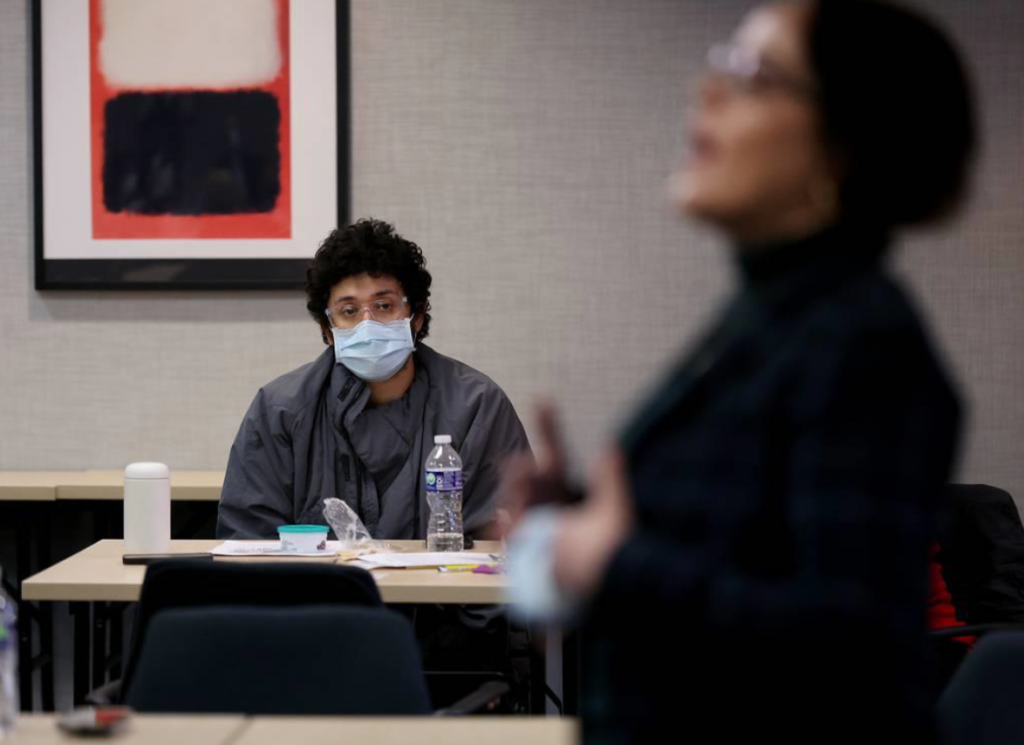Fellowship equips community members as nonlegal representatives in immigration cases
For as long as she can remember, Martha Armenta felt invisible in the only country she knew as home. She grew up in Little Village, where her parents settled after moving to Chicago from Sinaloa, Mexico, escaping poverty and violence, she said.
When she learned in high school she was in the U.S. without legal permission, she acknowledged that the dreams her parents sacrificed for were going to be harder to achieve. Still, she persisted.
She managed to go to college working three jobs to pay for it, and in 2012, with the help of community service workers, she obtained DACA — the Deferred Action for Childhood Arrivals program.
And in April, Armenta also finally became a permanent resident with the help of a U.S. Department of Justice accredited representative, who, like an attorney, can represent immigrants in applying for benefits and in some administrative proceedings.
Now she’s paying it forward.
On May 26, Armenta was one of the 21 fellows from 20 not-for-profit organizations across Illinois to get DOJ accreditation through the Colibrí Fellowship, the first of its kind professional fellowship by The Resurrection Project, for individuals seeking partial or full DOJ accreditation to legally represent immigrants as non-attorney
With the city facing an influx of migrants, the goal of the fellowship is to equip bilingual and bicultural community workers as accredited, nonllegal representatives in immigration cases to strengthen the capacity of community-based legal aid organizations.
From January through March, there were more than 400 legal screenings of asylum-seekers in a program established by the Department of Human Services of Illinois, said Erendira Rendon, vice president of immigrant justice at Chicago’s Resurrection Project, and not enough attorneys available to help them file their cases.
According to Rendon, the number of those potentially in need of legal services would likely surpass existing nonprofit legal capacity. About 145 non-lawyers work in the nearly 70 organizations as accredited representatives who are approved by the Department of Justice. And only 16 representatives, however, have full accreditation allowing them to represent clients in immigration court.
The fellowship would also “open the legal profession to Black, brown and immigrant communities,” according to the program.
Illinois is home to 425,000 immigrants without permanent legal status, according to a research study by Rob Paral and Associates.
That is not counting the new arrivals in the last few months, accounting for more than 10,000 asylum-seekers, according to city officials.
Attorneys and others interviewed for Paral’s report suggest that 10% of 360,000 immigrants are eligible for status via asylum, the Violence Against Women Act, or another channel but do not have access to legal representation. Also, the majority of detained immigrants — about 79 % — do not have legal representation, according to the report.
“Now, with the thousands of Venezuelans that arrived, the number is greater,” said Rendon.
So even though Illinois has expanded its support for not-for-profit organizations to provide immigration services or outreach through several programs, including the Illinois Access to Justice program, funded by the state and The New Americans Initiative, “it is not enough to meet the extreme need,” Rendon said.
Most of the recent graduates of the Colibrí fellowship are immigrants themselves, such as Armenta, or children of immigrants. They said they want to be a part of the movement to encourage immigrants living in the state without authorization, to seek help from an accredited DOJ representative to find out possible ways to legalize their status.
David Flores is the son of immigrant parents. He lives in Joliet and is a member of the Spanish Community Center.
He said the fellowship means that he will be able to serve as a beacon of hope for his family and some neighbors.
Though he was born in this country, his parents and older brother emigrated from Mexico City.
Growing up, he was not aware that his parents did not have the same rights that he did and some of his cousins had DACA, he said.
“Having status, but knowing that I wasn’t able to help them or protect them, frustrated me,” he said.




